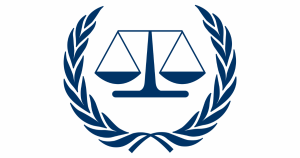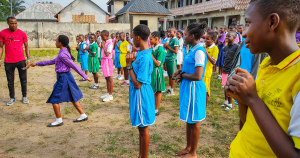Mr President, excellencies, distinguished delegates, ladies and gentlemen,
It is an honour for me to address this Assembly on behalf of No Peace Without Justice during this celebration of the first ten years of the ICC’s existence. We are pleased with the ongoing emphasis on decisions taken at the first Review Conference, especially in relation to the different stocktaking themes reviewed in Kampala. We would also like the spirit of Kampala to continue to guide this Assembly as it takes its very important decisions during this session, especially in relation to the ICC’s relevance and impact in situation countries and on victims and affected communities.
I take this opportunity to address what we believe are three areas of vital importance in strengthening the ICC’s relevance and impact, as well as its efficiency and effectiveness, and the role that the Assembly and individual States Parties have to play in that respect. Those areas are: outreach; ICC field presence; and an ICC situation Completion Strategy.
First, on outreach. Madam President, in the years since the ICC has been established, No Peace Without Justice has found many allies in this Assembly to ensure that the ICC develop and implement a robust outreach strategy for and in each of its situation countries. This Assembly has consistently maintained that outreach is a critical element for the success of the ICC in fulfilling its mandate to bring justice for the worst crimes known to the world. This Assembly has also consistently maintained that outreach needs to begin at the earliest possible opportunity, preferably from the time when the Court first begins a preliminary examination in a situation, to engage communities and engage their support for and cooperation with the ICC in all its aspects, from initial investigations to the conclusion of all appeal proceedings.
No Peace Without Justice has recently concluded a survey on the impact and legacy of the Special Court for Sierra Leone from the perspective of the people of Sierra Leone and Liberia at the request of the SCSL and in cooperation with partners from both countries. Copies of the report are available here at this Assembly. Overall the findings were very positive in a range of areas, including the SCSL impact on peace, the rule of law, redress and the trials and sentencing. In general, perceptions in Sierra Leone were more positive than in Liberia and more people had heard of the SCSL in Sierra Leone than in Liberia. This is down to two things: first, the SCSL was based in Sierra Leone and not in Liberia. Second, outreach began much earlier in Sierra Leone than in Liberia and was able to have a broader reach, in part due to the establishment of district outreach offices in every district of Sierra Leone from an early stage.
SCSL outreach was not without challenges, particularly relating to funding that in part prevented it from reaching out as broadly and widely as the Court and the people of Sierra Leone and Liberia would have liked. Nonetheless, Madam President, there can be no doubt that there is a direct correlation between the outreach activities of the SCSL and the positive contributions it has made to peace and justice. There can be no doubt that outreach contributed to the effectiveness and efficiency of the Special Court as a whole, from investigations to appeals. And there can be no doubt that without outreach, the SCSL would not be completing its mandate with the resolution of the Taylor appeal, just one decade after it began its work.
Madam President, No Peace Without Justice has worked in numerous conflict and post conflict situations for more than a decade. We now have a team working in Libya since before the end of the conflict. Just over one year ago, when we first began our work there, perceptions of the ICC were largely positive; now, however, people’s perceptions have changed and it has become very difficult even to talk about the ICC there. While the lack of outreach is not the only factor, it does point to the difference outreach can make for the Court’s ability to carry out its work and fulfil its mandate.
No Peace Without Justice urges the ICC and its States Parties to apply the lessons learnt from the SCSL in three respects. First, in respect of early and sustained outreach. Second, in respect of sufficient human and financial resources for outreach being available through the regular budget. Third, in respect of registry-led outreach done in coordination with other organs of the court so that all the voices of all parts of the Court can be brought to the people and so the people’s voices can be heard by all organs of the court. For States Parties, we particularly urge you to retain strong support for early and sustained outreach in the omnibus resolution and in the budget.
Second, on field presence. No Peace Without Justice has consistently called on States Parties to support an enhanced and strengthened ICC field presence, which is important for all of the Court’s functions, from outreach to investigations to trials. We appreciate that this has become an important policy issue and urge States Parties to continue to engage with the Court in discussions on the centrality of field offices in the implementation of the mandate of the Court and to support the Court in its ongoing efforts.
Madam President, we can certainly appreciate the challenges associated with establishing and maintaining a strong field presence in conflict countries; the early days are particularly challenging as conflict are complex political and operational environments. Nonetheless, the ICC is an institution established precisely to deal with conflict and post-conflict situations and can and must find ways to work within those environments, as many other international agencies do. To do so, it needs to have the vision of itself as serving the people affected by conflict and by the crimes within its jurisdiction, a vision that ICC States Parties must share and must demonstrate to the Court through its policy guidance. The first rule of impact is to be there; if you are not there, you are not relevant.
No Peace Without Justice therefore urges this Assembly to retain its positive support for the ICC to enhance the Court’s field operations, both in the omnibus resolution and in its budget deliberations.
Third, on an ICC completion strategy. Madam President, the ICC is a permanent institution, one that is designed to stand as a permanent reminder to States to fulfil their obligations to investigate and, where appropriate, prosecute crimes under international law. However, from the perspective of each of its situations, the engagement of the ICC is transitory, not permanent: it begins with a preliminary examination, then proceeds through investigation and prosecution, and ends with appeal. It must fulfil its mandate and once it has done that, it must leave. And hopefully, if it is a job well done, it will never have to return.
As such, for each situation, the ICC, just like the ad hoc tribunals and the Special Court for Sierra Leone, needs a Completion Strategy, so it can determine as it begins work what it needs to do in each situation country to complete its mandate and, therefore, put itself in the position where it can consider its work is complete, its mission accomplished. A comprehensive completion strategy needs to be based on a clear vision of the effect the ICC could and should have in its situation countries, together with a clear vision of what it aims to achieve, and how the ICC system, including complementarity, can help each country in its transition from conflict to post-conflict, from dictatorship to democracy and from periods of political instability and violence to peace.
This is why the ICC will need to consider the same range of issues currently being considered by the ad hoc tribunals in their completion strategies, including in relation to judicial cases and registry management, residual functions, outreach and physical legacy issues. In many ways this should be easier for the ICC, as it can itself perform many of its own residual functions. Nonetheless, as the ICC is concluding its first trials, a comprehensive situation-completion strategy is becoming increasingly urgent, not only to “close” existing situations, but hopefully also to begin new ones with a vision and a plan as to what the end game should be.
Madam President, No Peace Without Justice urges States Parties to consider an ICC situation completion strategy as a critical element in enhancing the ICC’s efficiency, effectiveness and ability to fulfil its mandate. To that end, we invite all States Parties to participate in the side event we are co-sponsoring together with the delegation of the United Kingdom on 17 November and urge you to consider providing guidance to the ICC on developing a completion strategy, in consultation with relevant stakeholders, in this year’s omnibus resolution.
Madam President, in this historic year, we would like to thank everyone who has contributed to bringing us where we are today, including States, civil society, the first and subsequent ICC Registrars, Prosecutors and Presidents and others who in large or small ways have helped with the ongoing development of the ICC in its mission to end impunity and provide justice and redress. We look forward to the next ten years and its continuing development and improvement, starting with this eleventh session of its Assembly of States Parties.
Thank you
- NPWJ oral statement as delivered
- NPWJ statement as distributed
- Special section dedicated to the 11th ASP to the ICC
NPWJ and the ICC
No Peace Without Justice, which is a founding member of the NGO Coalition for the International Criminal Court (CICC) and which has been one of the organisations at the forefront of promoting the establishment and entry into force of the permanent International Criminal Court (ICC) and continues to work for its universal ratification, has participated in every session of the ASP since its first session in 2002, the year the ICC was established.
For further information, contact Alison Smith on asmith@npwj.org or +32-2-548-3912 or Nicola Giovannini on ngiovannini@npwj.org or +32-2-548-3915.




